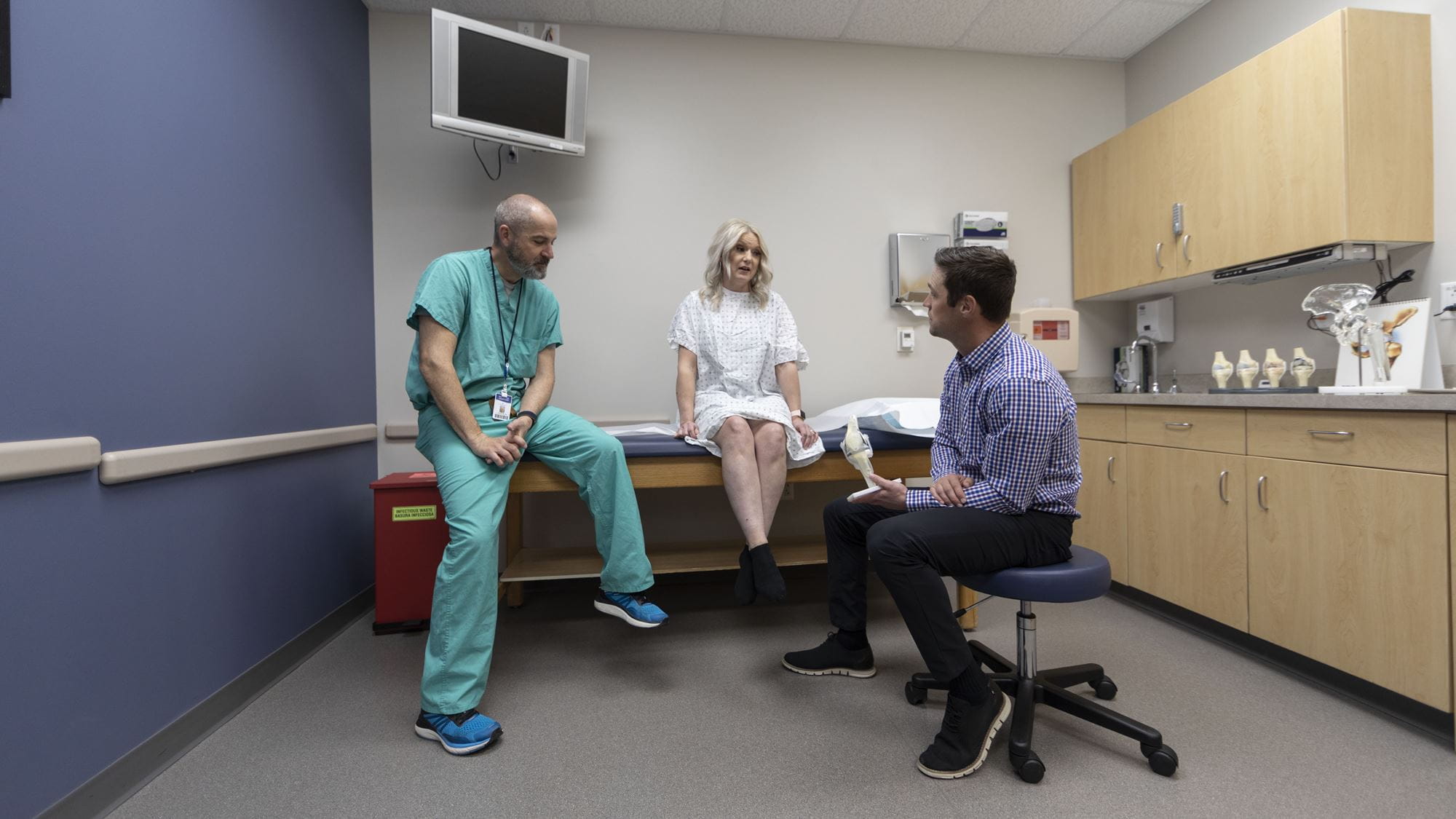What are common shoulder problems?
The shoulder is where the collarbone, shoulder blade, and arm bones come together, allowing the arm to reach up, behind, and across the body. As with all joints, daily wear and tear or a sudden injury can cause shoulder problems over time. Common shoulder problems include pain and swelling in the joint due to tendinitis, bursitis, or arthritis. Injuries to the ligaments and tendons can also cause a torn rotator cuff, dislocated shoulder, or fracture (broken bone).
Shoulder injuries are painful can keep you from doing simple everyday tasks, like combing your hair. Injuries can be acute (sudden) or chronic (long term).
Acute Shoulder Problems
Sprains
Dislocation
Torn Rotator Cuff
Fracture
Chromic Shoulder Problems
Tendinitis
Bursitis
Arthritis
Frozen Shoulder
Causes
Common causes of shoulder pain include:
- Falls, blows, or motor vehicle accidents
- Strains
- Repetitive motion
- Medical conditions
- Daily wear and tear
Diagnosis & Tests
When you visit the doctor about a shoulder problem, the doctor may do any or all of the following:
- Ask you about your medical history, including what your shoulder feels like and when your problems started.
- Look at your shoulder and ask you to move it certain ways.
-
Do one or more imaging tests to see what is happening inside your shoulder. Imaging tests might include:
- X-rays
- MRI
- Ultrasound
- CT scan
Treatments
Home-care treatment for shoulder problems can include:
- Resting the injured shoulder while it is healing. Take a break from any activity that forces you to overuse your shoulder.
- Icing the shoulder after an injury or when you have pain from tendinitis or bursitis.
- Taking nonsteroidal anti-inflammatory medicine (NSAIDs) such as ibuprofen, aspirin, or naproxen for pain and swelling.
- Exercises to keep moving. You may be tempted not to use your shoulder because of the pain and stiffness. But it is best to keep doing simple, gentle shoulder exercises to keep your shoulder loose.
- Massaging and stretching to ease pain and stiffness in your shoulder and neck muscles.
If medical treatment is needed, the doctor may:
- Recommend physical therapy to teach you how to safely use your shoulder and make it stronger and more flexible.
- Prescribe certain medicines for pain and inflammation, including cortisone shots.
- Recommend surgery to remove scar tissue or repair large tears or fractures.
Prevention
You can do a number of things to help prevent shoulder problems, including:
- Being aware of how you use your shoulders when you work or do physical activities.
- Maintain good posture when doing things like typing at a computer keyboard and proper form when working out at the gym.
- Resting your shoulder if you’re been using it a lot.
- Exercising to keep your shoulders strong. Do stretches and gentle shoulder exercises to keep a good range of movement in your shoulders.
- Avoiding shoulder strain. Think twice before making the shoulder do something it is not strong enough to do—for example, lifting too much weight or doing repetitive movements above your head.
- Preventing falls by removing things in your home and yard that you or someone else could trip over.


